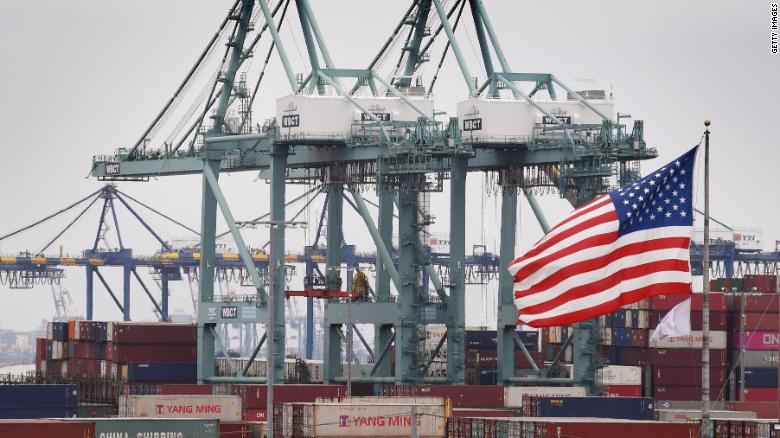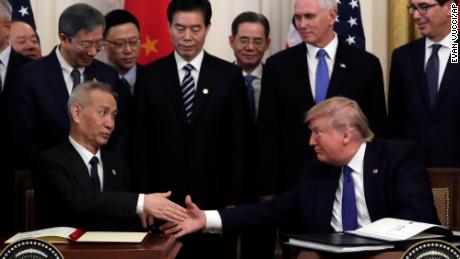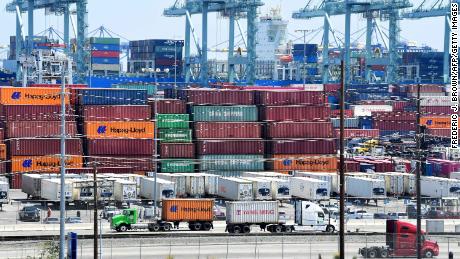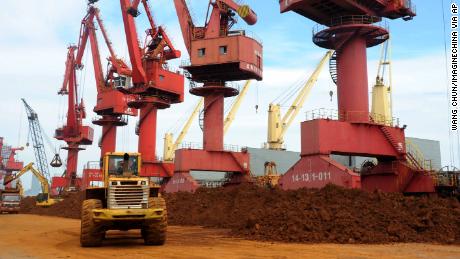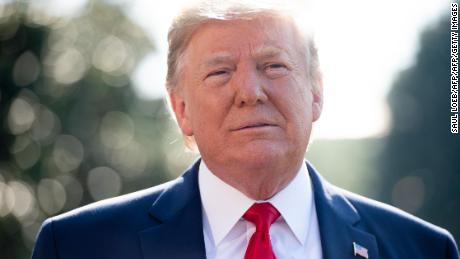New Delhi (CNN Business)The trade war is back on.
China on Friday slammed President Donald Trump's decision to slap a 10% tariff on $300 billion worth of goods, effectively taxing all Chinese exports to the United States. Beijing said it was ready for a fight.
"China will have to take necessary counter-measures," a spokesperson for China's Ministry of Commerce said in a statement, adding that "all the consequences will be borne by the US."
Beijing may be able to cope with the fallout from an escalating fight between the world's two biggest economics, but it faces more constraints than Washington and will have to calibrate retaliation carefully.
China "basically has very few good options," said Julian Evans-Pritchard, senior China economist at Capital Economics. "In terms of directly hitting back at the US, it's quite difficult to do it without hurting themselves."
Here's what China could do next.
Hit back with tariffs
China has previously fired back with tariffs of its own on goods from the United States. It responded to Trump's last escalation in May by hiking duties on US goods worth $60 billion from 10% to 25%.
But China buys a lot less from the United States than it sells, meaning it has only $120 billion worth of goods to target. Washington can tax around $540 billion of Chinese imports.
"'China is likely to retaliate with a combination of tariff and non-tariff measures, given that it has a much shorter runway when it comes to tariffs," said Darren Tay, Asia country risk analyst at Fitch Solutions.
And most of the American exports China hasn't yet targeted are high-tech products that can't easily be substituted, according to Evans-Pritchard.
"It will be partly inflicting pain on themselves to impose tariffs on many of those products," he added.
Restrict rare earths supply
One of China's advantages in the trade war is its near monopoly on a group of minerals that the global tech industry can't live without.
China controls more than 90% of the global production of rare earths, 17 minerals with magnetic and conductive properties that power most electronic devices. It also accounted for 80% of all rare earth minerals imported by the United States between 2014 and 2017.
Beijing has been shoring up its rare earth industry recently and issuing thinly-veiled threats that it could curb exports of the minerals. Chinese state media published a commentary two months ago with the words: "Don't say we didn't warn you."
"That probably would have a bigger impact in the short run, but it would do a lot of collateral damage to China's other trading partners, particularly Japan, which is the primary importer of rare earth minerals," Evans-Pritchard said.
Rare earth stocks in Asia soared on Friday hours after Trump announced the new tariffs, with investors speculating that prices could go up if China restricts supply.
Devalue the yuan
China's currency, the yuan, has gotten caught up in trade battles with the United States in the past, prompting accusations from Trump that Beijing was artificially lowering its value to help its exporters.
The yuan doesn't trade freely like other major currencies such as the dollar and the pound. Every day, China's central bank sets a "band" which limits movements in the yuan's value to 2% up or down.
The Chinese currency slumped on Friday against the dollar, both in Shanghai and on the offshore market where it moves more freely. In China, one dollar now buys about 6.94 yuan. Outside of China, the currency fell to a 2019 low of nearly 6.98 before recovering slightly.
A weaker yuan makes Chinese exports cheaper, helping cushion the impact of US tariffs.
"I think the best tool they have, the most powerful tool they have, is the exchange rate," Evans-Pritchard said. "That's really a tool that would allow them to directly offset quite a lot of the impact of the tariffs."
But China has reasons not to devalue the yuan ŌĆö a big drop in the currency could spark an outflow of money from China and hurt economic stability.
"Beijing would want to avoid a repeat of 2015 when devaluation set off a crisis of confidence in the yuan," said Tay, of Fitch Solutions, referring to a previous move lower that led to accusations that China was starting a "currency war."
Another reason for China not to use its currency as a weapon, according to Evans-Pritchard, is that it could be the nuclear option.
"The problem with using that tool is if they use it now, that's it basically. It's hard to see the trade negotiations not breaking down completely at that point," he said.
Make life harder for US companies
Another way of tightening the screws on the Trump administration also carries risk.
Some of the biggest US companies, including Apple (AAPL), Tesla (TSLA), Ford (F) and Starbucks (SBUX), depend on China's huge market for billions of dollars of revenue. Many of them have already been hit by tariffs and a broader economic slowdown in China.
The Chinese government could make life tougher for US firms by tightening restrictions on their business and adding regulatory hurdles.
But doing so could hurt its already slowing economy if companies decide to move production elsewhere ŌĆö as some already have.
"China's less reliant on foreign investment than it used to be, but it still is keen not to see multinationals shift out of the country en masse," Evans-Pritchard said. "If you make life very hard for US firms operating in China then there's the risk you're shooting yourself in the foot to some degree."
It's a live issue for one big Wall Street bank. Morgan Stanley (MS) on Friday announced it would take control of its joint venture in China by upping its stake to 51%.
But Chinese regulators still need to sign off on the move, and the sudden reigniting of the trade war could complicate the US banking giant's plans.
